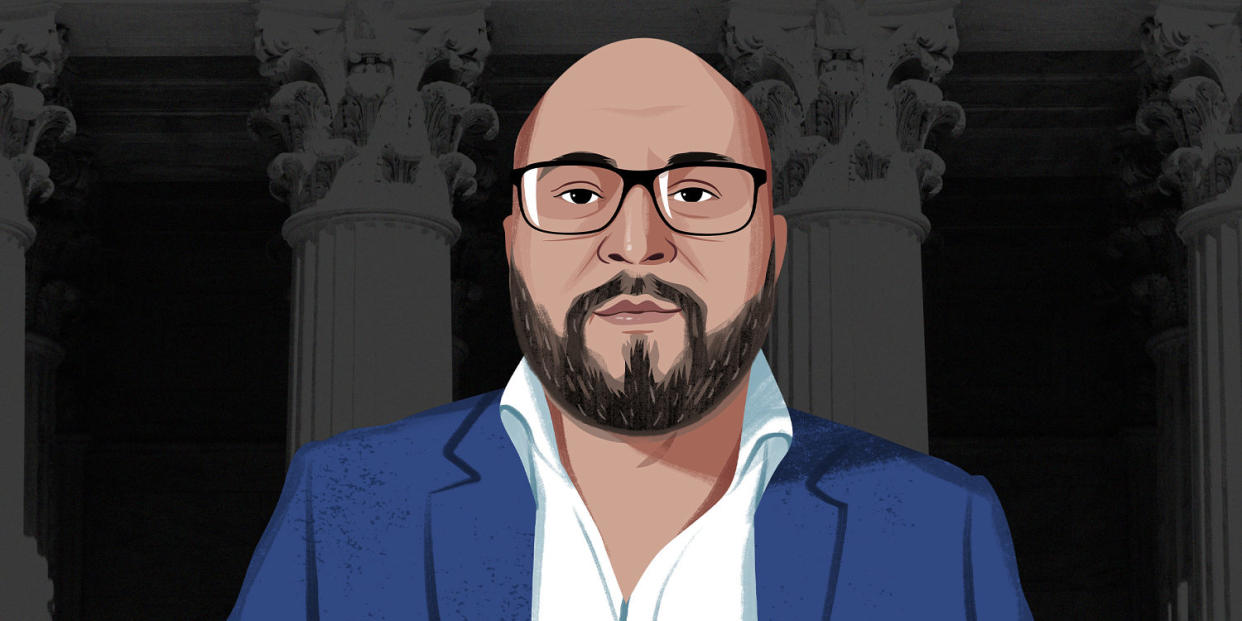Ask Jordan: Would Trump risk perjury if he takes the stand?

- Oops!Something went wrong.Please try again later.
“Isn’t Trump risking a perjury charge if he testifies? And is perjury a separate charge that would require another trial?”
— Matthew Gruskin, Fort Worth, Texas.
Hi Matthew,
Yes and yes.
Given the defendant’s loose relationship with the truth, the odds of him lying on the stand if he testifies seem pretty good. Defendants have the right to testify, but they don’t have the right to lie. Perjury is a separate charge that would require another trial — or, more statistically likely but perhaps less so in Trump’s case, a guilty plea.
Manhattan District Attorney Alvin Bragg is willing to bring perjury charges. He just did so against Allen Weisselberg, the former Trump Organization CFO whose name has surfaced during this criminal trial against the former president. Weisselberg pleaded guilty and was sentenced last month for perjury stemming from the civil fraud case against him, Trump and others that they lost earlier this year and is being appealed. The septuagenarian is incarcerated at the city’s notorious Rikers Island complex with a projected July release.
I should point out that, in addition to not knowing what Trump would say on the stand, perjury isn’t always as easy to prove as one might think. It requires more than just lying. To make a felony case like the one brought against Weisselberg, prosecutors need to prove beyond a reasonable doubt that the false testimony is “material to the action, proceeding or matter in which it is made.”
Under New York law, a false statement is “material” when it “reflects on the matter under consideration during the action or proceeding in which it is made, or tends to support and give credit to the witness in respect to a main fact in issue.” So Trump lying about, say, his height and weight (a topic that arose when he was booked in his Georgia case) probably wouldn’t cut it. But the defendant would have plenty of opportunities to earn himself a perjury charge if he took the stand. It’s up to him, really, both in terms of whether to testify and then how he would do so.
Another thing to keep in mind is that first-degree perjury is a more serious charge than the first-degree falsifying business records charges he’s facing now. (Trump has, of course, pleaded not guilty, otherwise he wouldn't be on trial.) The records charges are “E” felonies — the lowest level — and first-degree perjury charges are “D” felonies (“A” is the highest level). So Trump could be acquitted or get a hung jury at this trial, or even be convicted but not sentenced to imprisonment, only to get locked up for perjury stemming from this case.
We’re already in that somewhat paradoxical territory when it comes to Trump’s gag order — that is, on the precipice of him facing lockup if he violates it an 11th time (not a typo), which could be the only time he would serve in this case.
Of course, this may all wind up being a mere thought experiment, because it’s far from certain that Trump takes the stand. Most defense lawyers would get nervous even thinking about a client like that testifying. But it’s ultimately the defendant’s choice. Will this thin-skinned defendant be egged on by Stormy Daniels’ taunting tweet Thursday night that only “real men” take the stand? Or by Michael Cohen’s impending testimony that will likely also drive his former boss nuts? Stay tuned as we enter week four of testimony.
Subscribe to the Deadline: Legal Newsletter for weekly updates on the top legal stories, including news from the Supreme Court, the Donald Trump cases and more.
This article was originally published on MSNBC.com

